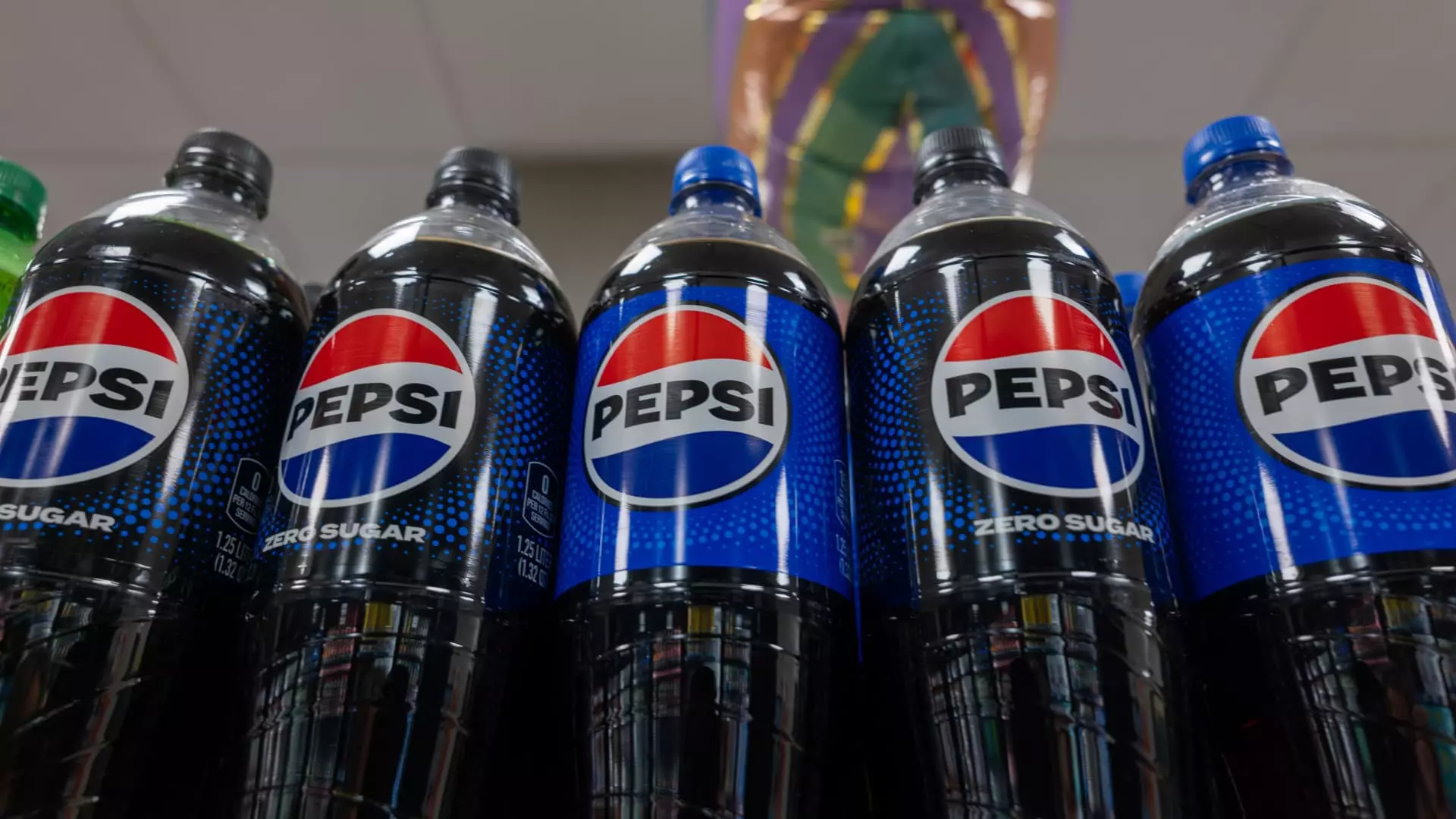PepsiCo, the established titan of the food and beverage industry, recently delivered disappointing quarterly results that should raise eyebrows among investors and stakeholders alike. Though the company reported stronger international sales, the sharp decline in North American demand is not just a fleeting issue; it signals deeper systemic concerns that need addressing. In what feels like a cautionary tale, the company has adjusted its earnings forecast and been vocal about the factors that threaten to upend its growth trajectory. Disturbingly, the narrative emerging from PepsiCo’s latest figures amplifies a need for a more thoughtful response to consumer trends and global economic pressures.
The Declining North American Market: A Crucial Alarm
PepsiCo’s North American performance is concerning, not just because of a downturn in profit margins but due to its implications for the company’s future. Net income attributable to the company dipped to $1.83 billion, a marked decline from $2.04 billion the previous year. The shift from previous lofty earnings to a steep drop illustrates a consumer base grappling with new realities, particularly amid rising inflation that has led consumers to become increasingly value-conscious. With a volume drop of 3% in beverages and an overall sales decline of 1.8 %, PepsiCo’s situation appears to be more than a temporary setback. The unmistakable decline in demand could be indicative of shifting consumer preferences, possibly in favor of healthier choices, which PepsiCo has struggled to capitalize on.
Economic Volatility and Tariff Troubles: The External Struggle
The external economic landscape exacerbates Pepsi’s challenges. Influenced by new tariffs, shifting trade dynamics, and a volatile global economy, PepsiCo has announced a more cautious forecast for its core earnings per share. As the company’s CEO Ramon Laguarta aptly stated, the forthcoming uncertainty from global trade will likely escalate supply chain costs. This acknowledgment is not simply a reflection of PepsiCo’s operations; it serves as a wake-up call to broader sectors that depend on stable trade conditions. While many industries are grappling with the disruption caused by geopolitical factors, PepsiCo’s acknowledgment of its impact on its business strategy is refreshing yet troubling. A failure to adapt could lead the company down a path of stagnation or further decline.
Innovation vs. Tradition: A Balancing Act
Interestingly, PepsiCo has proposed a multifaceted approach to reinvigorate its declining North American market by diversifying its product line. While traditional offerings remain the backbone of its sales—think Miss Vickie’s chips and various Quaker products—the growing commitment to multicultural and health-focused brands like Simply and Sabra suggests an understanding of shifting consumer preferences. Nevertheless, introducing new products may not be enough. The depths of consumer sentiment reveal a more profound unease connected to economic realities, compelling projects like acquiring Poppi, a prebiotic soda brand, highlight an ambitious attempt to pivot. Yet questions remain: Is PepsiCo responding fast enough to consumer demands? Are these acquisitions merely diversions from a broader strategy needed to reflect the current economic climate?
Despite these innovations, leadership must be wary of underestimating the traditional consumer base that still seeks products reminiscent of the comfort and familiarity of established offerings. The deluge of new brands may backfire if they fail to resonate with an already skeptical consumer.
What Lies Ahead: Volatility as the New Normal
As we analyze PepsiCo’s recent quarterly performance, it becomes painfully clear that the corporate landscape is shifting under the weight of external economic pressures and evolving consumer behaviors. The company has forecasted an unanticipated stagnation of its core earnings, and while it promised a low-single digit increase in organic revenue, this conservative outlook sends a ripple of concern across the industry. The road ahead for PepsiCo is fraught with unpredictability, and the stakes are higher than ever. If corporate giants like PepsiCo wish to remain relevant, they must embrace an agility in product development while addressing economic challenges head-on.
In an era where adaptability is king, PepsiCo’s current trajectory, coupled with its inability to decisively confront declining market performance and global volatility, raises the question: Is the company equipped to turn the tides or are they stuck in a state of reactionary measures? Time will tell, but one thing is evident—challenges abound, and a moment of reckoning is rapidly approaching.

